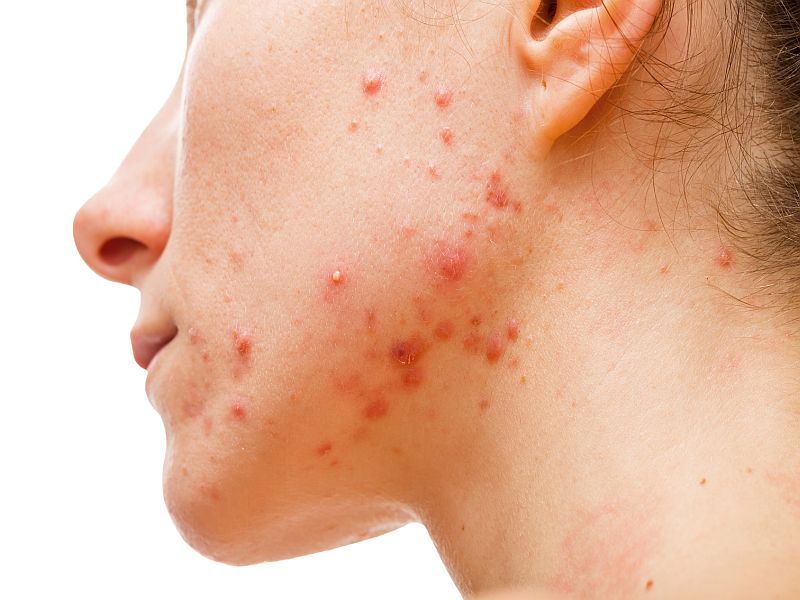Depression and acne are very common issues, but they’re also two conditions that are often misunderstood. Acne is commonly seen as a teenage issue, but it can affect people of all ages. Similarly, depression can be mistaken for sadness or grief — but the reality is much more complex than that. If you suffer from either acne or depression, there’s no need to despair. Here at Voibon Skincare, we have some tips for dealing with each condition separately as well as together!
Know skin issues caused by depression.
Acne is not a skin problem. It’s a symptom of other issues, such as hormonal imbalance and bacterial overgrowth. But it can also be caused by stress and improper diet.
The first step to treating acne is to determine the cause of your pimples, zits, blackheads or whiteheads. Once you’ve figured out what’s causing your breakouts—hormones, bacteria or inflammation—you can find the best way to treat them with products that are made for those specific issues.
Identify the type of acne.
Acne vulgaris is the most common form of acne. There are many other types with varying severity. You can identify the type of your acne by looking at your skin and noting any redness, bumps, or pustules present on your face or body. Also, look for any foreign objects such as hair stuck in clogged pores that may cause irritation and inflammation around them.
If you have oily skin, treat with a non-comedogenic moisturizer containing SPF 30+ UV protection to avoid dehydration from harsh ingredients such as alcohols found in toners and astringents. Avoid over-washing as this can strip away natural oils causing more dryness which leads back into an endless cycle of greasy skin.
Use skin products with full knowledge.
With the help of products, you can treat your Depression and acne and get rid of depression. However, you need to use these products with full knowledge. It is important not to use any skin product that contains alcohol because it causes dryness and irritation on the skin which may lead to worsening acne and depression. Instead, you can use natural ingredients such as Aloe Vera gel or olive oil for treating your skin problem in a natural way.
Another important factor that you should consider while choosing any skin care product is whether it has artificial colors or fragrances or preservatives in it. If yes, don’t buy them because they are harmful to your health and do not give positive results either in treating depression or curing acne problems.
Incorporate exercise in daily life.
You may be wondering how exercising can help with your depression. Well, exercise helps in several ways. One of the benefits to exercise is that it’s a great way to improve sleep quality. Exercise also releases endorphins which are hormones that make you feel happy and boost your mood. If you’re feeling down because of your acne, try incorporating some form of physical activity into your daily routines such as jogging or going for walks with friends or family members.
Not only will this help manage symptoms but it’ll also boost self-esteem by helping people see themselves as being healthier and more physically fit than before (which is important because many people who suffer from depression tend toward unhealthy behaviors)
Don’t pick and pop pimples.
Picking at or popping pimples can make the condition worse, but not because a pimple is too painful to handle. When you squeeze or pick at an acne pustule, it ruptures under your skin and releases bacteria into your pores. This causes inflammation and leads to more breakouts as well as scarring on your face. You should also avoid picking or popping blackheads as this can lead to spreading bacteria across other areas of your face, causing more breakouts in those areas too!
Make a new daily skincare routine.
When you’re depressed, it’s easy to ignore your physical health. Your skin takes a beating while you’re experiencing the symptoms of depression, but taking care of yourself can help with your mood and overall well-being.
Your daily skincare routine needs to be simple and stress-free. Start by using a gentle cleanser, toner, moisturizer, and sunscreen every day on clean skin after washing off any makeup or sunscreen from the previous day. You can also add in other treatments if they appeal to you: face masks, face washes/scrubs, etc.
Avoid wearing makeup for some time.
If you’re suffering from acne, it’s important to avoid wearing makeup. You can get acne because of the makeup you wear. Makeup contains many ingredients that can cause irritation and breakouts, including oil-based products such as mascara and eyeliner, which clog pores and cause blackheads. Chances are good that if you struggle with acne on your face (or anywhere else), then any time spent putting on makeup will be counterproductive at best—and potentially harmful as well.
Conclusion
If you suffer from depression or acne, then it’s important to treat both depression and acne correctly. Depression is a serious condition that can be treated and so is acne. Both conditions require different treatments and both are best treated together. We don’t intend to dedicate this post to people with only mild depression – by all means, share your problems here if you have any!
